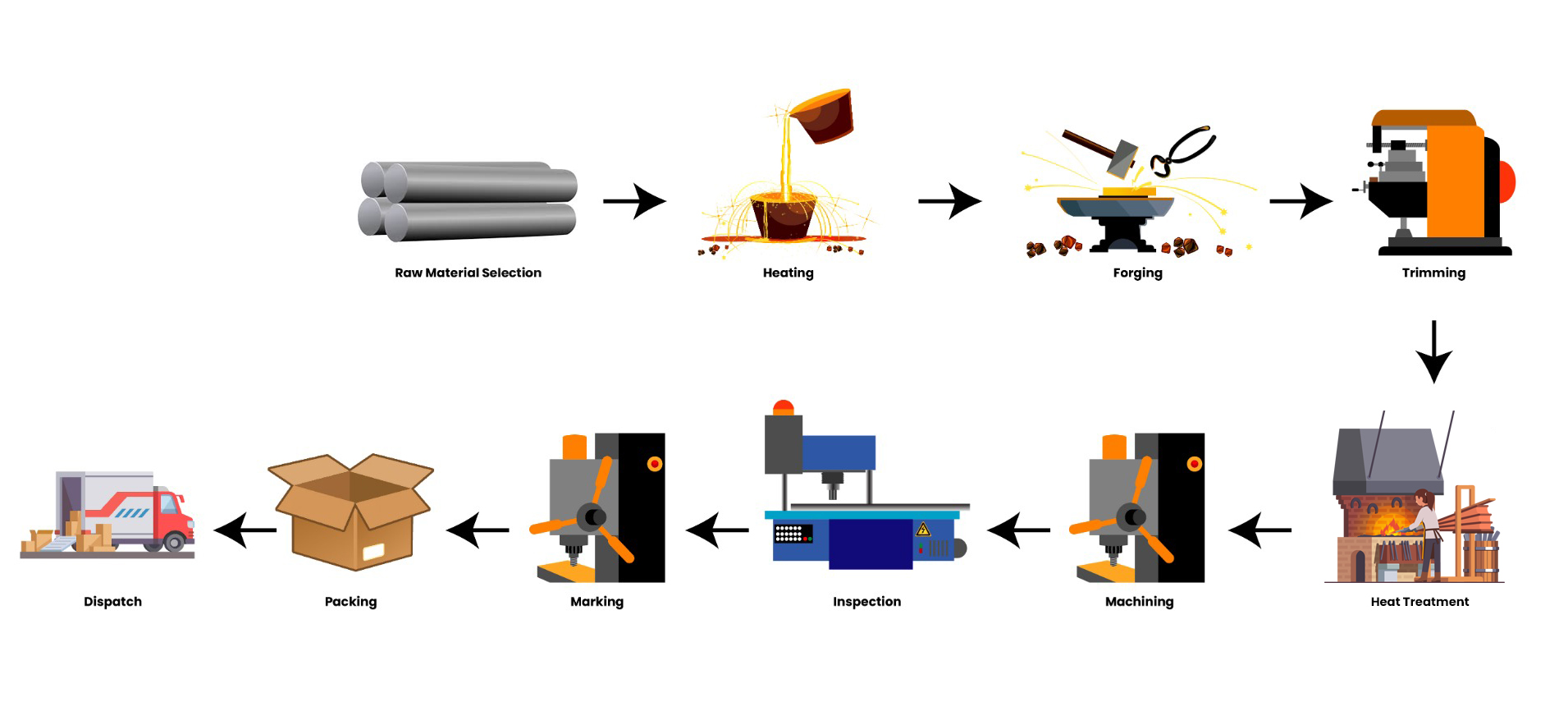When it comes to piping systems, forged/flange fittings are essential components that ensure the safe and efficient operation of pipelines. As a leading forged/flange fittings manufacturer, stockist, supplier, and exporter in India, Hilton Forge India provides high-quality flanges/ fittings that meet the most demanding applications.
In this blog post, we’ll take a closer look at the manufacturing process of forged/flange fittings, their benefits, and why Hilton Forge India is the best choice for your forged pipe fittings needs.
Introduction to Forged / Flange Fittings
Forged / Flange fittings are metal components that are formed by shaping a metal bar or billet into the desired shape using compressive force. This process is known as forging and is done under high pressure and temperature conditions to ensure that the metal is forged and easy to shape.
There are several types of forged/flange fittings, including elbow, tee, cross, coupling, union, and cap, each with a unique shape and function. These fittings are commonly used in piping systems that carry fluids or gases under high pressure and temperature.
Manufacturing Process of Forged / Flange Fittings
The manufacturing process of forged / flange fittings involves several stages, including:
-
- Raw material selection: The first step in the manufacturing process is selecting the appropriate raw material, typically high-quality metal alloys like carbon steel, stainless steel, or nickel alloys. Raw material selection is typically done by purchasing the material from suppliers or by sourcing the raw material in-house.
- Heating: Raw material is heated to soften it and make it forging material. The temperature varies depending on the type of material being used. Heating is typically done using a furnace or induction heating equipment.
- Forging: The heated metal is then placed in a forging press, where it is compressed and shaped using high-pressure and specialized dies. Forging presses can be hydraulic, mechanical, or pneumatic depending on the size and complexity of the product being manufactured.
- Trimming: After the forging process, the excess material is trimmed off to create a finished product. Trimming can be done using a variety of tools including saws, grinders, and shears.
- Machining: If necessary, the forged pipe fittings may undergo further machining to create specific shapes or features. Machining is typically done using lathes, mills, or drilling machines.
- Inspection: The finished fittings are inspected to ensure they meet quality standards and specifications. Inspection can be done using a variety of tools including calipers, micrometers, ultrasonic testing equipment, PMI testing, and Dye Penetrant treatment.
- Marking: Once the inspection is completed, forged/flange fittings are marked with relevant information such as size, material grade, manufacturer’s name, logo, and other specifications as required. Marking ensures proper identification and traceability of the fittings.
- Packing: The marked forged/flange fittings are carefully packed using suitable packaging materials to protect them from damage during storage and transportation. Packaging may include crates, boxes, or pallets, depending on the size and quantity of the fittings.
- Dispatch: The packed forged/flange fittings are then ready for dispatch to the customers. Proper logistics and shipping arrangements are made to ensure the fittings reach their intended destination safely and on time.
Benefits of Forged / Flange Fittings
There are several benefits to using forged fittings in piping systems, including:
- High Strength: Forged fittings have excellent mechanical properties and can withstand high pressure and temperature conditions.
- Corrosion Resistance: Forged fittings made from stainless steel or alloy steel are highly resistant to corrosion, ensuring a longer service life.
- Leak-proof: Forged fittings are designed to provide a leak-proof seal, reducing the risk of leakage and ensuring the safe and efficient operation of the pipeline.
- Versatility: Forged fittings are available in a wide range of sizes and shapes, making them suitable for various piping applications.
Final Words!..
Manufacturing high-quality forged fittings is a complex process that requires expertise and precision. At Hilton Forge India, we take great pride in our ability to produce top-quality fittings that meet the highest standards of performance and durability. Whether you’re in need of forged pipe fittings manufacturers in India or forged pipe fittings suppliers, we have the expertise and experience to meet your needs.





Comment (1)
Comments are closed.